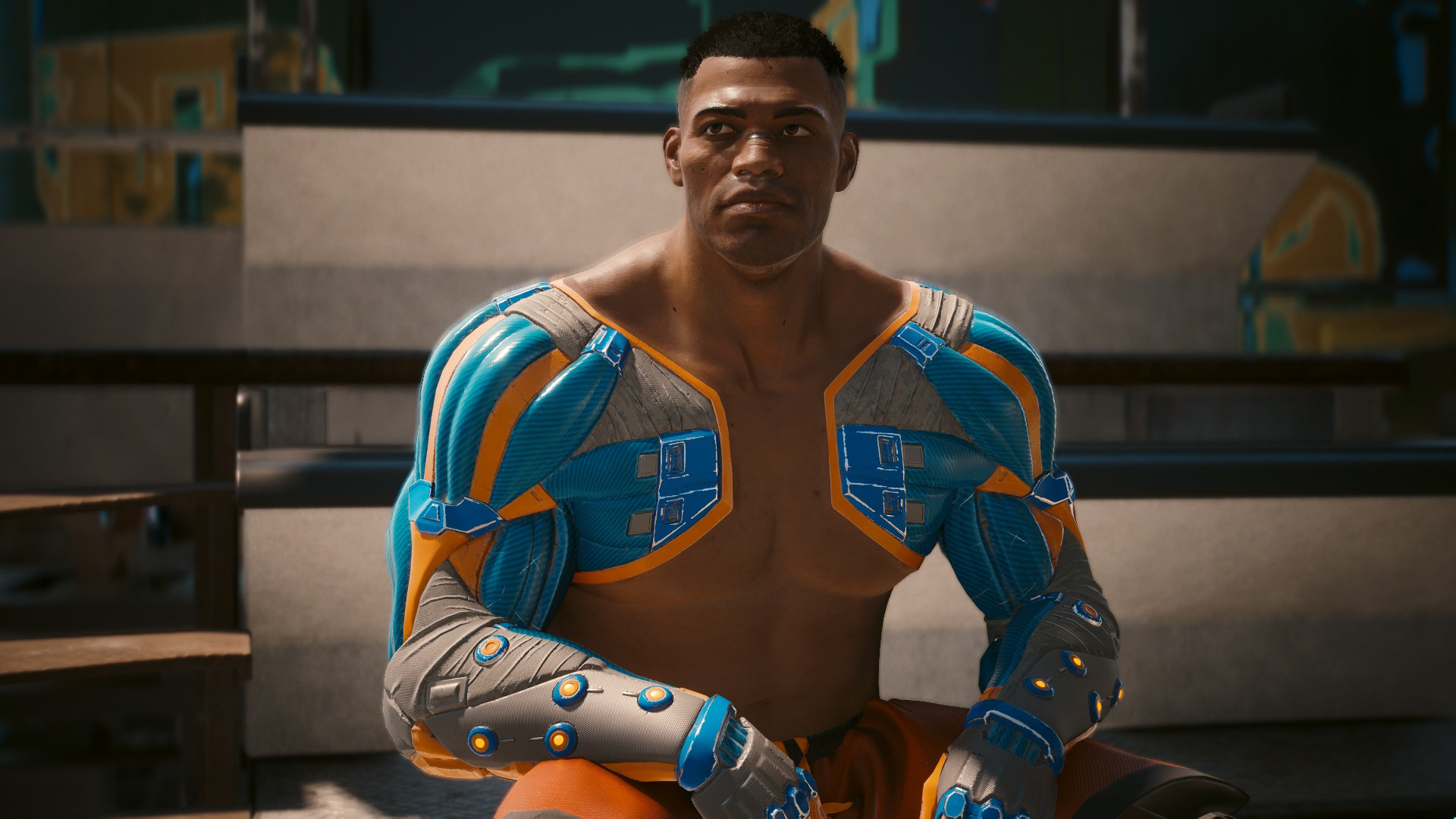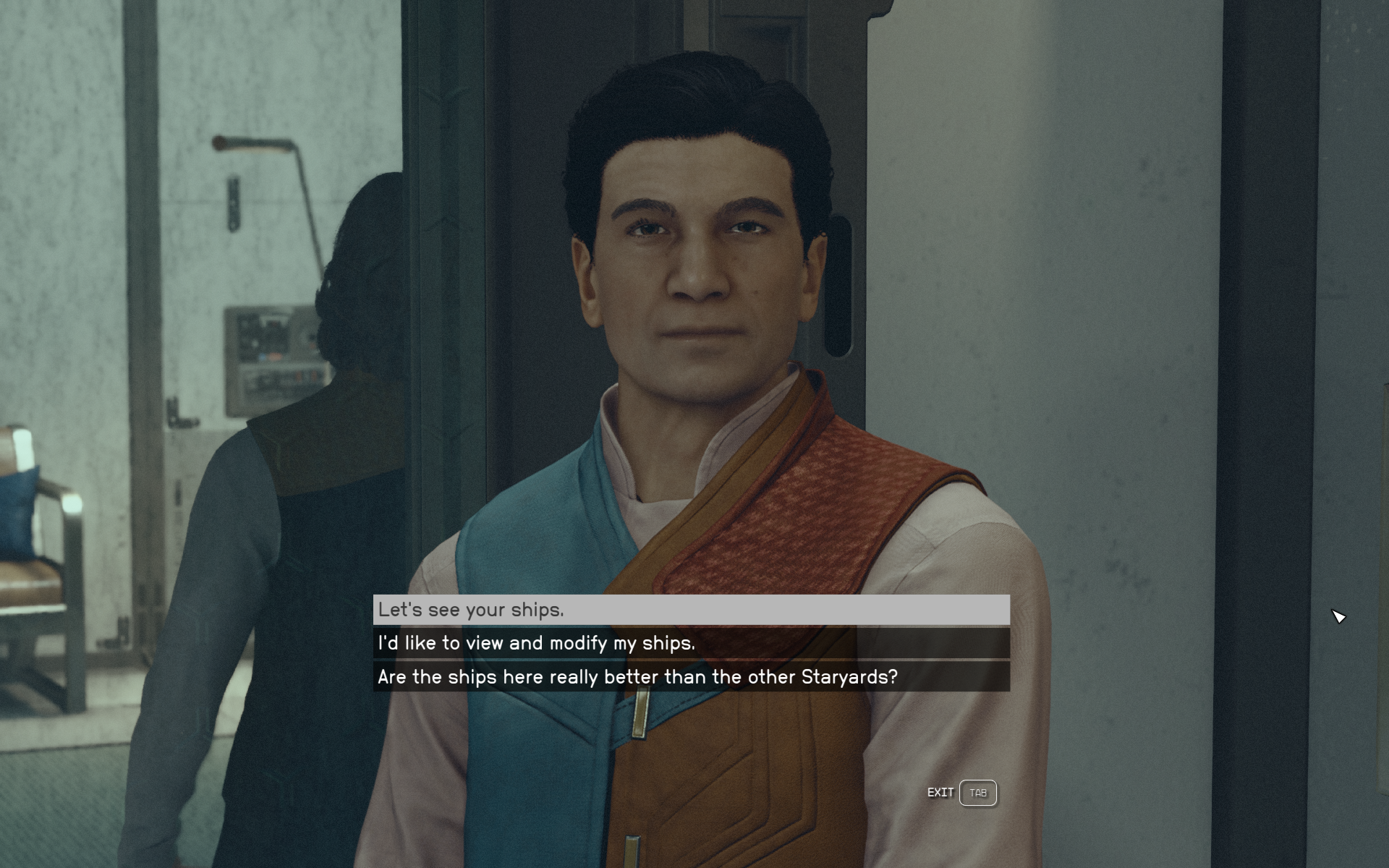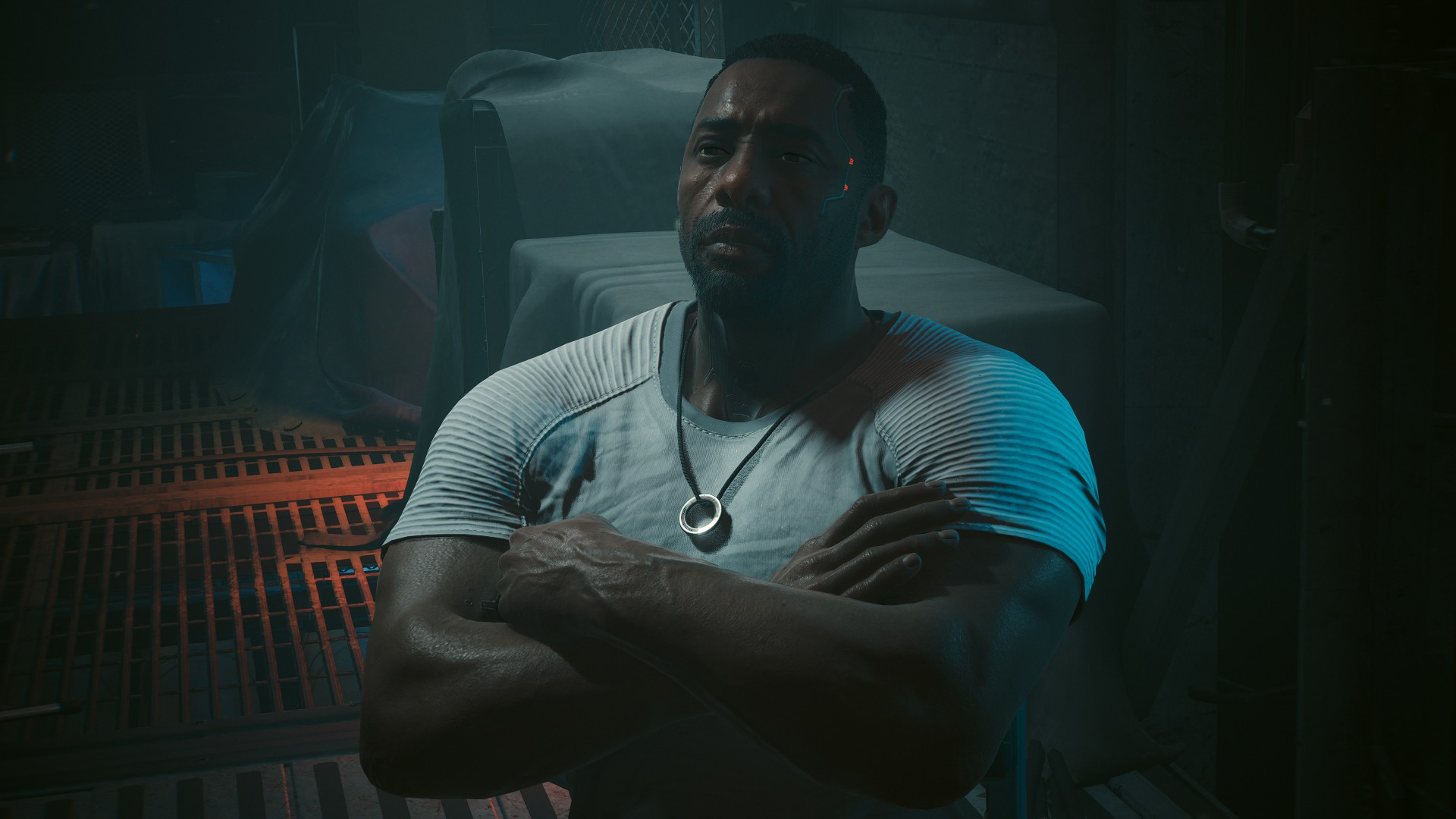Cyberpunk 2077 figured out the secret ingredient to make talking fun, and I wish Starfield had copied it
Talking in Cyberpunk is a sandbox. Talking in Starfield is a prison.

In a season that's been a non-stop firehose of RPGs worth talking about, the two that I can't get out of my head are Cyberpunk 2077: Phantom Liberty and Starfield. Not often do you see a doubleheader of FPS RPGs that blend those genres in very different ways. We could be here all day debating the merits of what makes them different—Starfield's massively segmented galaxy versus Cyberpunk's seamless, extremely convincing singular city—but what's giving me whiplash is how they tackle a particularly sticky challenge: first-person talking.
First-person games don't get the luxury of the cinematic shot/reverse shot camera angles that keep a conversation flowing. First-person RPGs have to be exciting enough to engage players without constantly cutting away to something new, all while they can only see (and often hear) one side of the conversation. It's no wonder why Eidos sidestepped the issue entirely in the modern Deus Ex games by switching to third-person while talking.
Deciding that it'd make no such compromise with its first FPS, CD Projekt tried something else to make first-person talking fun that I really like: moving around.
During the last Phantom Liberty quest I played, my best bud Idris Elba and I had a long chat about the complexities of working for a government that once threw him away like garbage. At the same time he paced around a disused underground safehouse, rerouting power to get the lights back on before popping a squat in an old lawn chair and eventually leaning over a railing. Another character entered the room before either of us noticed, and we awkwardly changed subjects.
I can go anywhere mid-chat, and often don't even have to look at the person I'm talking to.
Cyberpunk is so dogmatically committed to its perspective that this is the closest it ever gets to a cutscene. They're actually a lot like traditional cutscenes—fully mo-capped actors moving in scripted sequences with more body language than your average NPC—except they're laced with dialogue choices that let me slightly steer the conversation, and crucially, I have the same freedom of movement. Barring occasional moments when I'm sitting down, I can go anywhere mid-chat, and often don't even have to look at the person I'm talking to.
I can't help but imagine what this same sequence would've looked like if it were a main quest in Starfield. To start, the part where Idris leads me through the backrooms of a bar to a hidden elevator would've had at least one loading screen. Then, we would've stood completely still in the middle of the room, staring deeply into each other's blank expressions while I silently prompted him about his last operation. When the third character appears, the camera would instantly cut to a close-up of their face, and then I'd have to stare at the sides of both of their faces while they talk to each other.

Dialogue prison
CD Projekt's choice to let players roam during dialogue is a small detail, but I think it's actually the secret sauce that makes talking in Cyberpunk engaging, and why talking in Starfield is so stale by comparison. Having the freedom to pace around a room, read nearby text logs, loot, or selectively make eye contact with characters creates an extra layer of roleplaying beyond dialogue choices themselves.
Keep up to date with the most important stories and the best deals, as picked by the PC Gamer team.
Most scenes let me keep my gun drawn at all times, a feature that I use constantly when meeting Night City's many weirdos for the first time. Unlike so many big-budget games that insist you see every detail of its expensive storytelling, Cyberpunk doesn't mind if I get distracted reading the labels of household products while Idris is explaining some important spy stuff. You can disengage from conversations just by walking away, or often choose to say nothing. It's cool to have agency not only in the dialogue, but in the pacing and even the cinematography of a scene.
CD Projekt's freedom comes with its own hang ups, too. Positional dialogue isn't always consistent, resulting in some choices that you can only make while standing close and looking at the other character, and others that you can be anywhere for. These discrepancies create awkward pauses where I'm not sure why a conversation isn't progressing until I fiddle with my positioning and finally see the dialogue option—annoying.

Even if Starfield's voice acting was on the level of Cyberpunk, which it definitely is not, Bethesda shoots itself in the foot with its hard-locked camera. The zoomed-in camera transitions are jarring and more than a little creepy (who stares directly at each other while talking?). There was a time when the Bethesda way was legitimately the best, most immersive example of talking to people in videogames, but in 2023 it sticks out as needlessly dated.
I sympathize with Bethesda, though, because I think they'd actually agree: eight years ago, Fallout 4 tried to reinvent Bethesda talking with a Deus Ex-style third-person dialogue camera and a voiced protagonist. I think it was pretty elegant, but the overwhelming response from fans was that they missed how the old games worked, so now talking in Starfield looks like videogames circa 2006.
Maybe something was lost in translation at the time—I think what fans mainly disliked was Fallout 4's reduced dialogue choices, not the camera—and Starfield might've been an overcorrection. Or maybe Todd Howard likes things just the way they are. If Bethesda is looking to shake things up again in Elder Scrolls 6, Cyberpunk's dynamic conversations are a compelling template.

Morgan has been writing for PC Gamer since 2018, first as a freelancer and currently as a staff writer. He has also appeared on Polygon, Kotaku, Fanbyte, and PCGamesN. Before freelancing, he spent most of high school and all of college writing at small gaming sites that didn't pay him. He's very happy to have a real job now. Morgan is a beat writer following the latest and greatest shooters and the communities that play them. He also writes general news, reviews, features, the occasional guide, and bad jokes in Slack. Twist his arm, and he'll even write about a boring strategy game. Please don't, though.

